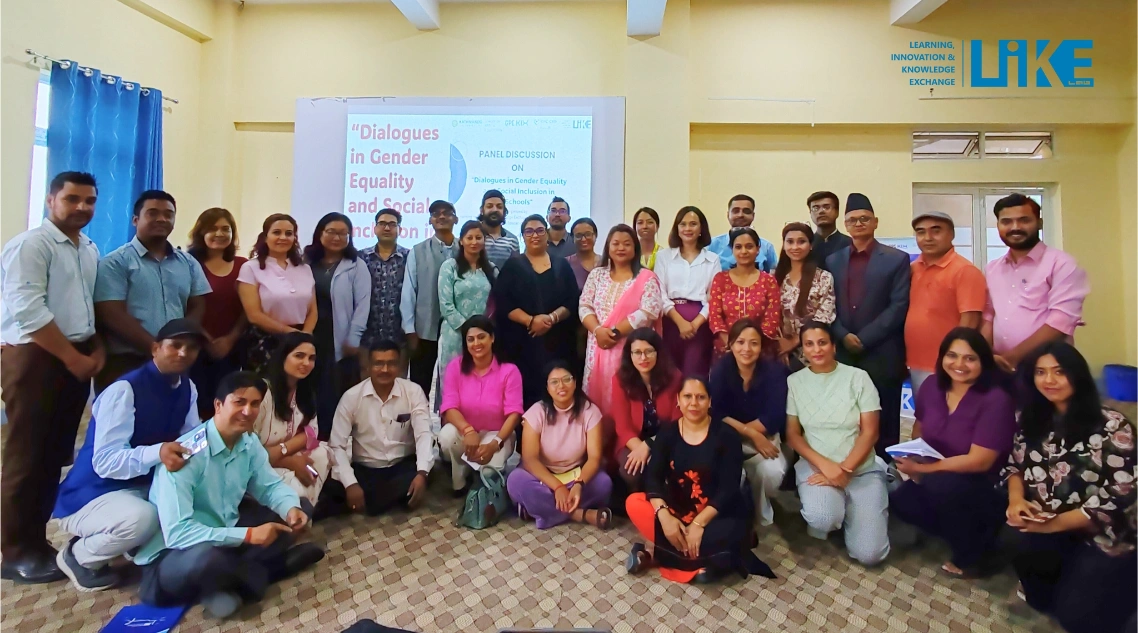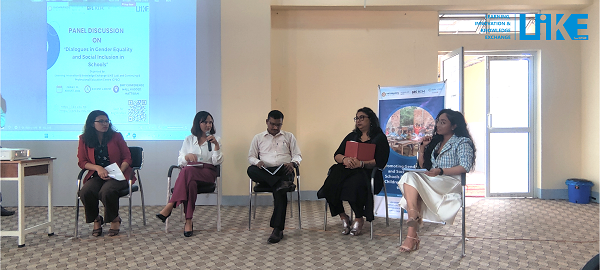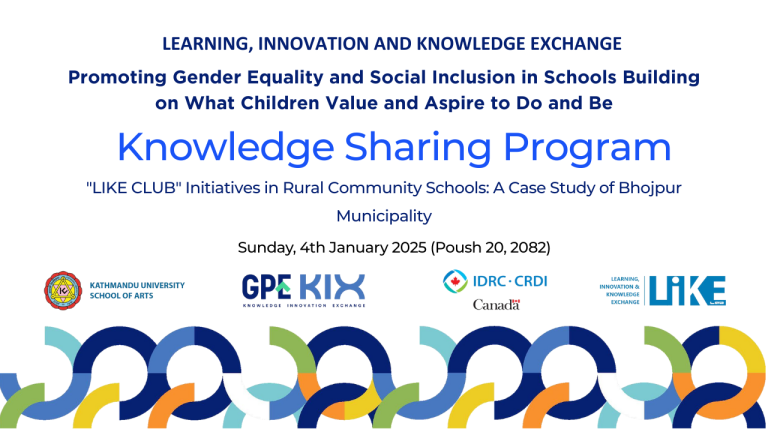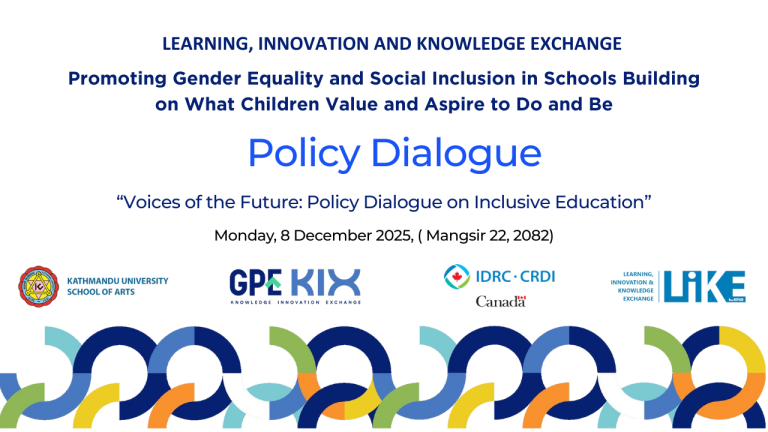
LALITPUR, NEPAL, August 23, 2024 – A national-level educational stakeholders’ meet on “Dialogues in Gender Equality and Social Inclusion in Schools” was successfully conducted at the BMT Conference Hall, Kathmandu University School of Education, Hattiban. The event, a joint effort by the Learning, Innovation and Knowledge Exchange (LIKE) Lab under the Kathmandu University School of Arts and the Continuing and Professional Education Centre (CPEC) under the Kathmandu University School of Education brought together experts, educators, and practitioners to deliberate on the critical issues of gender equality and social inclusion in schools.
The discussion featured several prominent speakers:
- Manaslu Gurung, an Inclusive Education Practitioner, provided an insightful overview of “What is Social Inclusion?” highlighting the need for integrating inclusive practices in schools to ensure no child is left behind.
- Dr. Sushil Shrestha, Team Leader of the Digital Learning Research Lab at KU, spoke on “Social Inclusion in the Era of AI”, exploring the potential and challenges of artificial intelligence in fostering social inclusion in education.
- Dr. Lina Gurung, Assistant Professor at Kathmandu University School of Education, discussed “Gender Equality and Social Inclusion in Education – Challenges and Key Issues,” addressing the systemic barriers and proposing actionable solutions.
- Dr. Baburam Dhungana, a faculty member at Kathmandu University School of Education, presented on “Social Inclusion in Schools – Way Forward,” outlining strategic approaches for schools to enhance inclusivity.
The panel discussion, moderated by Ms. Pooja Dangol, Faculty at Kathmandu University School of Education, featured the following panelists:
- Ramila Subedi, Faculty, Kathmandu University School of Education
- Sawana Bhatta, Certified Soft-skills Trainer
- Dr. Poonam Rishal, Researcher & Inclusive Education Practitioner
- Padam Mahar, Program Manager, Handicap International
The speakers discussed women’s leadership within the educational sector. The panelists emphasized the ongoing challenges women face in securing leadership roles and the need of interventions such as training programs for empowering women.
Other key topics covered were the critical role of parents in fostering GESI within schools, the necessity of reshaping traditional gender norms at family level and the significance of soft skills training in advancing GESI by challenging societal norms.
The discussion also addressed disability concerns in Nepal’s educational sector, calling for inclusive policies and innovative measures to ensure equal opportunities for all students. The panelists advocated for an intersectional approach to GESI, emphasizing the need to integrate LGBTIQ+ issues into educational discussions and curriculums to promote diversity and inclusion from an early age.




